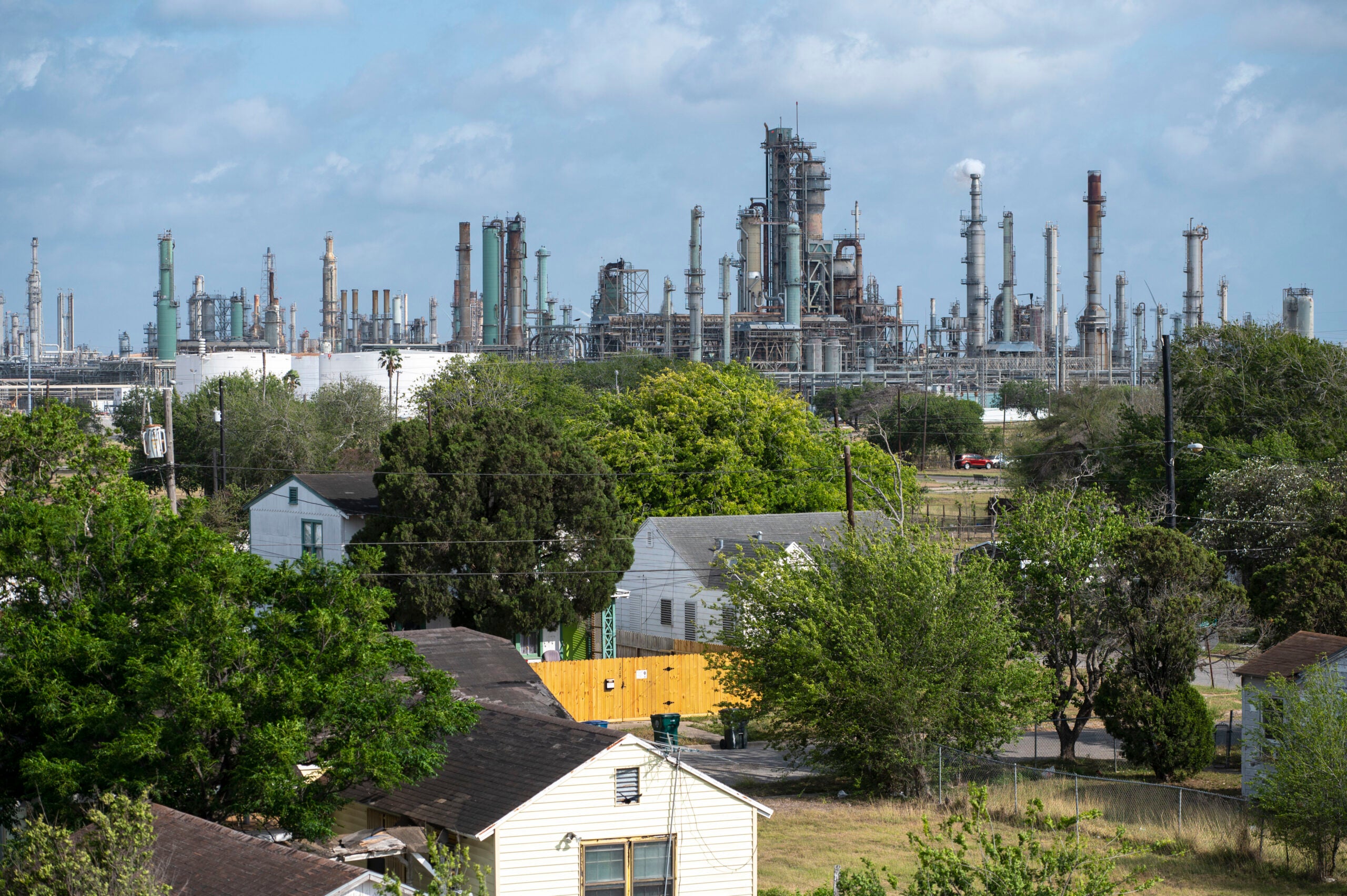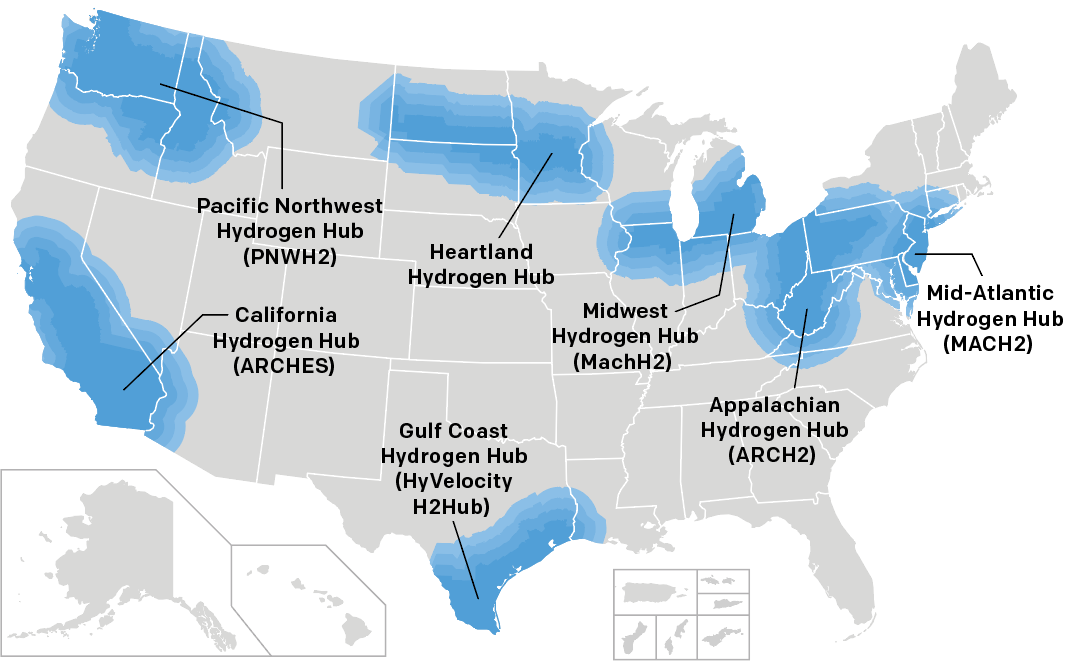Earthjustice goes to court for our planet.
We’re here because the earth needs a good lawyer.
Hydrogen Hubs Pose Risks to Communities and the Climate
This page was published a year ago. Find the latest on Earthjustice’s work.
What’s happening: The federal government just awarded over $44 million — the first part of a potentially $2.2 billion award — in funding across two “hydrogen hubs” in the Midwest and the Gulf. Seven total hydrogen hubs have been proposed across the country, which could receive a combined total of $7 billion in federal funding. Earthjustice and our partners are raising concerns about the Midwest hub and others like it, which haven’t meaningfully engaged frontline communities or provided transparent plans for producing truly clean hydrogen.
Why it matters: Hydrogen hubs can pose a major threat to the climate and public health, especially if they perpetuate the use of fossil fuels. As the incoming Trump administration prepares to take office, one of our top priorities is fighting to ensure communities are protected from pollution. It’s critical that the federal government only fund hydrogen hub projects that produce truly clean hydrogen, powered by new clean energy sources, and use hydrogen in only hard-to-decarbonize sectors. Our climate progress depends on getting this right. Read our guide for communities to learn more about the hubs program and how to get engaged.
What is hydrogen?
Hydrogen can be used as a fuel, and unlike fossil fuels, does not create carbon emissions when it is burned. But pure hydrogen is not naturally occurring on Earth and is produced by an extremely energy-intensive process that uses more energy than it produces. A major challenge is figuring out how to produce hydrogen cleanly.
What are hydrogen hubs?
- Hydrogen Hubs are regional networks of hydrogen producers, users, and the connective infrastructure between them. The federal government created the Regional Clean Hydrogen Hubs Program in 2023 and directed $7 billion to their creation.
- Locations: The seven planned hubs are the Appalachian Hub in Ohio, West Virginia, and Pennsylvania; the California Hub; the Gulf Coast Hub in Texas; the Heartland Hub in Minnesota, North Dakota, and South Dakota; the Mid-Atlantic Hub in Pennsylvania, Delaware, and New Jersey; the Midwest Hub in Illinois, Indiana, Michigan, and Iowa; and the Pacific Northwest Hub in Washington, Oregon, and Montana.
- Concerns: Community advocates and environmental groups are growing increasingly concerned about how these projects will impact the climate and local communities. There is a lack of publicly available information about these projects and what is known heightens these concerns.
How might hydrogen projects impact communities and the climate? It depends on:
- How the hydrogen is produced: Hydrogen produced with new clean energy sources like wind and solar could benefit communities by reducing climate pollution, as well as local air pollution. But hydrogen produced from fossil fuels — or from existing clean energy that is taken from the grid, only to be replaced by fossil fuel energy — would increase carbon pollution and other air pollutants that contribute to smog and health effects like asthma. Scientists have warned about this risk and the substantial harm that could result to our climate and communities.
- How the hydrogen is transported: Because hydrogen molecules are small and light, hydrogen is prone to leaking out of pipelines, threatening safety due to hydrogen’s flammability and explosiveness. Safe transport of hydrogen will require new pipeline construction, which raises its own set of concerns.
- How hydrogen is used: Because hydrogen requires more energy to create than it produces, using hydrogen to power anything that can run on renewable energy, such as homes and vehicles, wastes critical energy resources. Hydrogen production can use several times more energy than it creates.
How can communities help shape Hydrogen Hub projects
- Community Benefits Plans. Each Hydrogen Hub must develop a Community Benefits Plan, which is supposed to outline how the Hub will engage communities throughout the development of the project, minimize harm, and ensure benefits. Communities can use these plans to hold the Hubs accountable, although their effectiveness will depend on details that are currently unknown.
- Federal, state, and local permits and approvals. Hub projects may need various approvals before construction or operation. The process of getting these permits and approvals often includes opportunities for public participation and influence.
- Engaging with media and policymakers. Advocacy strategies like contacting the press, spreading the word through social media, phone-banking, and petitioning campaigns are critical tools that communities can use to raise awareness and influence public opinion about Hub projects, and put pressure on Hubs and decision-makers to address community concerns.
Earthjustice, Just Transition Northwest Indiana, Chicago Southeast Environmental Task Force, and other community partners hosted a rally in Northwest Indiana’s industrial corridor near Chicago on Saturday, Nov. 16 to demand that taxpayer dollars go to truly clean hydrogen projects—not dirty hydrogen projects like BP’s in the Midwest Hub—and that the Hubs address community concerns.


